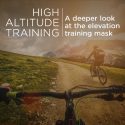GAQ: A screening tool for physical activity

Are you making regular exercise your goal for this year? Great! Being more active is a common New Year’s resolution.
You may wonder if it is safe for you to be more active. In most cases, your doctor will be thrilled to find out you are going to exercise more. Being active is a great way to get healthier, manage stress, and just feel better. But some people do need to approach with caution.
What should you do to prepare for getting more serious about exercise?
The Get Active Questionnaire (GAQ) can be a great starting point in your journey to being active. It’s a basic screening tool that takes just a few minutes to fill out.
The Canadian Society for Exercise Physiology (CSEP) created the GAQ. Since 1967, this group has studied the science and evidence surrounding exercise and translated its findings into best practices for the public.
You can use the GAQ for any age. Fill it out for yourself, or for a child or dependent. The GAQ asks yes/no screening questions. If you answer “no” to all the questions, it will help you calculate a good starting point for your physical activity goals. The questionnaire also has a section with helpful general advice on topics such as increasing exercise gradually, doing activities you enjoy, and cutting back on hobbies that involve a lot of sitting.
If you answer “yes” to any questions, you can get advice from the CSEP website. You’ll find articles that help explain why your answer means you should be careful when starting a new exercise routine. If you get this result or have any concerns, always talk to a health care provider before you take the next step.
Your doctor may tell you to go ahead and get active, exercise with adjustments, or restrict your activities to a safe range. Most doctors and other health care providers want you to be active. The clear health benefits of being active usually outweigh any risk involved, but ask for help first.
If you want more help and advice on getting active, turn to certified professionals. There are too many fitness certifications to name here, but two organizations offer certifications that are clearly above the rest: the American College of Sports Medicine (ACSM) and the National Strength and Conditioning Association (NSCA). Both organizations train their certified members to screen people by calculating risk factors. In some cases, experts will recommend a treadmill stress test with an EKG (heart rhythm test before prescribing any type of physical activity.
If you are thinking about becoming more active, the GAQ is a great first step. And you can find lots of other resources to help you get started safely.
References:
www.csep.ca/en/publications/get-active-questionnaire



